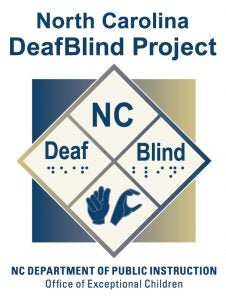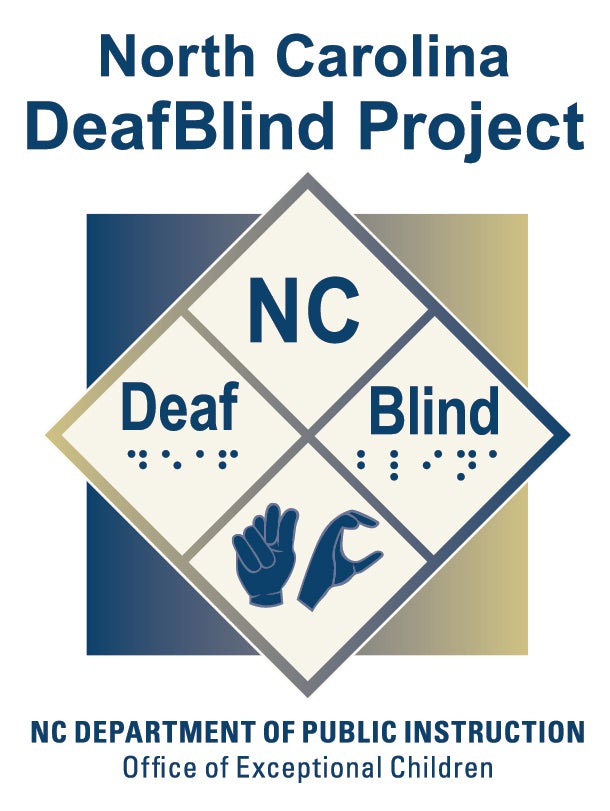
Do you know of a child or family of a child, birth to 22, with both vision and hearing loss?
There are free supports from the North Carolina DeafBlind Project that may be available to help!
DeafBlindness is the combination of functional, medical, or progressive vision and hearing loss which may interfere with a child’s ability to:
- Communicate and interact with others.
- Access information.
- Move about safely and efficiently in familiar and unfamiliar settings.
The type and severity of the combined losses differ from child to child and can have a significant impact on their development and learning. A child with DeafBlindness does not have to be totally deaf and/or blind. In addition to DeafBlindness, many children may also have another disability or diagnosis, such as:
- Intellectual disability
- CHARGE Syndrome
- Usher Syndrome
- Sensory Integration Disorder
- Down Syndrome, etc.
All supports are provided to eligible children, their families, and educators at no cost! These supports include:
- Educational training for families, educators, and service providers.
- Assistance in developing education and transition plans.
- Technical assistance for education personnel in school, home, and community settings.
- Family networking opportunities through in-person events, phone calls, social media, etc.
- Information and resources for community, medical, and adult services.
Children, birth to 22, with a combination of vision and hearing loss, or with degenerative conditions that may lead to DeafBlindness may be eligible for supports from the North Carolina DeafBlind project. Supports can begin when the child is placed on the North Carolina DeafBlind Census. The Census is a written record of all the children with DeafBlindness in North Carolina who are eligible for supports. It is maintained by the NCDPI’s Office of Exceptional Children Division and updated annually.
Getting help early is important! Hearing and vision are essential to a child’s early development. Learning begins at birth but supports can start at any age.
For program information, NC Census and eligibility questions, and technical support, please contact any of the following Project Directors:
Dr. Alan Chase – NCDPI – alan.chase@dpi.nc.gov or 984–236–2582
Virginia Madorin – NCDPI – virginia.madorin@dpi.nc.gov or 984–236–2307
Dr. Sandra Warren – ECU Teacher Support Program – warrens @ecu.edu or 252-328-2699
Deborah Pickens -ECAC Family Support Program – dpickens@ecacmail.org or 1-800-962-6817

